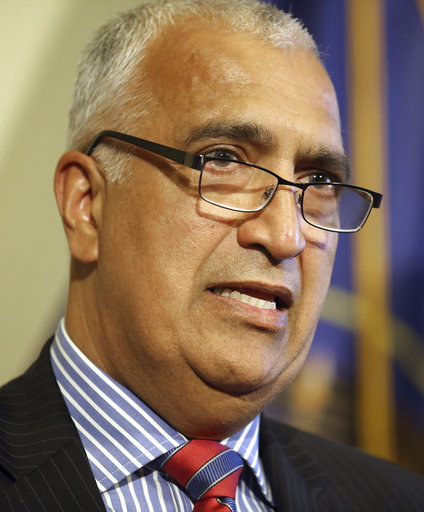$10 Million Lawsuit Against The Waterford School for Failure to Protect Female Student With Disabilities Raped by Male Classmate
Febrache Law with Sanford Heisler Sharp LLP, filed a lawsuit for Tabitha Bell against The Waterford School. Tabitha was subjected to bullying, shunning by other students, consistent mistreatment by faculty and ignoring a traumatic rape by a male classmate. The male a student, a member of the lacrosse team has a known history of sexual harassment and physical violence.
Tabitha has the rare Charcot Marie Tooth (CMT) form of Muscular Dystrophy. Her balance is affected, limiting her mobility and general physical functioning. Ms. Bell is an exceptional student, graduating from the $25,000 a year Waterford School to attend University of California Berkeley. The trauma of her five years at Waterford she’s suffered haunts her.
“Although the school promised this young girl and her family its campus would be a haven where she could safely learn while receiving appropriate support and resources, Tabitha’s five-year tenure there was consistently traumatic and damaging, Waterford’s conduct can never be reversed and the detrimental effects it has had on Tabitha will likely impact her adversely for the rest of her life,”
Deborah K. Marcuse with Sanford Heisler Sharp’s Baltimore office.
In December 2015, Tabitha was knocked to the floor by a visibly drunk student at the school’s winter dance at which security staff was promised but not provided. As a result of the school’s lack of adequate supervision, Tabitha suffered a concussion, developed complications resulting in eight days of hospitalization. After the dance Tabitha was bullied mercilessly by peers, causing damaging social isolation. In one egregious instance, two boys simulated Tabitha’s rape on stage in front of the entire school. Rather than adequately punish the boys, the school singled them out for an end-of-year award and inducted them into the Cum Laude Honor Society, the school’s highest honor. Although her family made efforts to communicate their concerns to Waterford, the school took no action to address or stop other students’ harmful ostracizing behaviors targeting Tabitha.
According to the complaint, these examples are not isolated incidents: throughout her time as a student, Waterford was unwilling to take the precautions necessary to ensure her safety and ensure that she had full access to school events and activities. In one of the most appalling examples of the school’s indifference to her disability, Tabitha had to rely on other students to carry her up and down the stage stairs at the school’s choir performances. The choir director regularly refused to allow her to use the handicap accessible entrance or use her support dog on stage because it “ruined the look” of the choir.
In November 2017, Tabitha was subjected to even more egregious and physically and emotionally damaging behavior when a male lacrosse player at Waterford, one of her few friends raped her at her home. When she told her parents about the sexual assault, they called the police and Tabitha cooperated in a police investigation. She and her parents subsequently learned the rapist had a history of aggressive, sexually inappropriate behavior – including previously threatening another female student at Waterford with sexual violence. The school was aware of the student’s violent past, but did nothing to warn Tabitha or her parents.
When her parents informed Waterford about Tabitha’s rape, Waterford did nothing to safeguard Tabitha from her rapist, requiring her parents to secure a protective order to prevent the rapist from contacting her on campus. In the wake of Tabitha’s report of the rape, students and faculty at the school escalated their bullying and school administrators directed other students not to speak to her and allowed her rapist, who had already graduated, access to the school campus despite the protective order.
“Because Waterford does not accept federal funds, which would subject it to the requirements of Title IX and the Americans With Disabilities Act, it seems to believe it can shirk its responsibilities to its students. However, under Utah state law, common law and the school’s own policies, Waterford must be held accountable for protecting its students. The school completely ignored these responsibilities.”
Christine Dunn, senior litigation counsel Sanford Heisler Sharp LLP
The complaint alleges Waterford is liable for negligence and breach of its duty of care; premises liability; negligent supervision of its faculty and students; invasion of Tabitha’s privacy by making a public disclosure of the facts of Tabitha’s rape to her entire senior class and much of the faculty; negligent infliction of emotional distress; fraud; violation of the Utah Consumer Sales Practices Act and negligent misrepresentation of the school’s ability to safeguard Tabitha’s physical, emotional, and social health and wellbeing.
“The Bells incurred some $125,000 in tuition costs alone so their daughter could receive a high-quality secondary education. Instead, Tabitha was subjected to years of constant emotional and physical stress and unimaginable trauma.”
Greg Ferbrache
The suit seeks $10 Million in compensatory, as well as punitive damages, along with legal costs and other relief the court may deem just and proper. A jury trial is requested.


